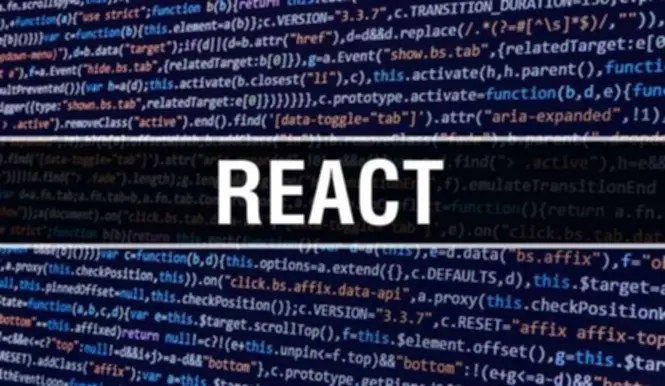Risk: What It Means In Investing, Tips On How To Measure And Handle It
This can lead to elevated loyalty, improved financial performance, and a competitive benefit in the marketplace. It is necessary risk level definition for organizations to regularly evaluate and replace their danger management technique to ensure that it stays efficient and relevant. This could be accomplished by conducting common threat assessments and incorporating feedback from stakeholders. Firstly, it helps organizations better perceive the potential dangers they face and how to handle them.
Common Errors To Avoid In Risk Administration
On the other hand, a low-risk funding may be labeled as “Negligible,” suggesting minimal potential impact. Similarly, within the healthcare sector, a medical process with a high-risk ranking may require further precautions and monitoring, while a low-risk procedure may involve fewer risks and problems. As a refresher, a risk matrix is a device that security professionals use to assess the various risks of workplace hazards. EHS staff assess risks by evaluating the severity of a possible hazard, in addition to the chance that it is going to occur.
What’s A Danger Stage In Cybersecurity?

Investment and commercial banks usually use this metric to determine the extent and occurrence ratio of potential losses of their institutional portfolios. One can apply VaR calculations to specific positions or entire portfolios or to measure firm-wide threat publicity. Elsewhere, a portfolio manager may use a sensitivity table to evaluate how adjustments to the completely different values of every safety in a portfolio will influence the portfolio’s variance. Other types of risk administration tools embrace choice timber and break-even analysis.
What Are The Primary Components Of A Risk Analysis?
How can companies develop a scientific method of deciding which dangers to simply accept and which to avoid? Companies ought to set appetites for risk that align with their very own values, methods, capabilities, and competitive environments—as well as those of society as a whole. While most investment professionals agree that diversification can’t assure towards a loss, it’s an important element to serving to an investor reach long-range monetary targets, whereas minimizing risk. Country risk refers again to the risk that a country won’t be capable of honor its monetary commitments. When a rustic defaults on its obligations, it might possibly hurt the performance of all different monetary instruments in that country—as well as other nations it has relations with. Country danger applies to stocks, bonds, mutual funds, options, and futures that are issued within a selected country.
- Risk is a probabilistic measure and so can never tell you for sure what your precise risk exposure is at a given time, solely what the distribution of attainable losses is likely to be if and once they occur.
- Create choice bushes as you undergo your project planning process so you’ll find a way to determine potential risks and their likelihood and impact alongside the way.
- In this text, we break down how to create a threat assessment matrix in 4 straightforward steps and tips on how to monitor your risk matrix so you’ll be able to continue to establish rising threats.
- Anytime you make investments cash into one thing, there is a threat, whether or not giant or small, that you simply may not get your cash back—that the funding might fail.
- If we’ve caught your consideration in terms of discussing risk analysis on a project, don’t fear.

If an unforeseen event catches your group unaware, the impact might be minor, corresponding to a small influence in your overhead costs. In a worst-case situation, although, it might be catastrophic and have serious ramifications, such as a big monetary burden and even the closure of your small business. While some prefer much less danger, different traders prefer much more threat than those that have a larger web worth. Those who want more threat of their portfolios can enhance the dimensions of the summit by lowering the opposite two sections, and those wanting less threat can enhance the size of the bottom.
Promote a culture of accountability and transparency within your organization where each member takes ownership of their actions. Align governance practices, enhance threat management protocols, and ensure compliance with authorized necessities and internal policies by streamlining and standardizing workflows via a unified platform. While adopting a threat management normal has its advantages, it isn’t without challenges. The new standard might not easily match into what you would possibly be doing already, so you would need to introduce new methods of working. This methodology of risk administration makes an attempt to reduce the loss, quite than fully remove it. While accepting the danger, it stays centered on preserving the loss contained and preventing it from spreading.
That is, if the likelihood of the danger taking place in your project is .5, then there’s a 50 % likelihood it’ll occur. There can also be an influence scale, which is measured from one to fantastic, with five being the most influence on the project. Finally, organizations should resolve how they’ll respond when a brand new threat is identified. This decision-making process ought to be versatile and fast, actively engaging leaders from throughout the group and honestly assessing what has and hasn’t worked in previous scenarios. A static strategy to threat isn’t an possibility, since a company could be caught unprepared when an unlikely event, like a pandemic, strikes.
Strategic dangers are those that come up from exterior elements corresponding to adjustments in the market, competition, or technology. Operational dangers, then again, are internal dangers that arise from the day-to-day operations of the group. In abstract, risk scoring is a fragile artwork that requires a mix of quantitative rigor, area expertise, and adaptability.

Conservative investments give you lower threat and reasonable profits, while very aggressive investments provide an opportunity for outsized features but also expose you to the possibility of big losses. On the opposite hand, because the 3×3 matrix has a primary design it’s open to errors. For that cause, it’d turn into difficult to truly decide the place the boundary between acceptable and unacceptable lies. In addition, with a 3×3 matrix, there are only three classes of risks — low, medium and excessive.
Loss prevention and reduction are other danger controls that settle for the danger but seek to reduce the potential loss (insurance is one method of loss prevention). Backup servers or generators are a standard example of duplication, ensuring that if an influence outage happens no knowledge or productiveness is misplaced. Second, risk management is the procedures in place to attenuate the damage accomplished by danger. Third, threat communication is the company-wide method to acknowledging and addressing danger. These three primary elements work in tandem to determine, mitigate, and communicate danger.
Create choice trees as you undergo your project planning course of so you can identify potential risks and their chance and influence alongside the way. Risk evaluation is the process of identifying and analyzing potential future events that may adversely impression an organization. A company performs danger analysis to higher perceive what might happen, the monetary implications of that occasion occurring, and what steps it could take to mitigate or get rid of that risk.
At the project risk degree, this may also be an occasion with a excessive chance of occurring and a big impact on the project. Before we dive into the 4 risk ranges in danger administration, it’s important to know the basics of risk management. As talked about earlier, danger administration is the method of identifying, analyzing, evaluating, and addressing potential risks in a company. The final a part of your risk evaluation matrix is to prioritize the dangers and create a danger administration plan to mitigate or neutralize them, along with your dangers categorized accordingly. You’ll need to outline the steps you’ll take if the danger does occur and the methods you’ll deploy to assist get the project back on observe.
Organizations can use expertise to enhance the effectivity and effectiveness of their threat administration strategies. For example, they will use risk management software program to automate risk evaluation, streamline information assortment, and improve information evaluation. Effective risk administration can bring many benefits to an organization, including elevated effectivity, improved decision-making, and decreased costs. By identifying and addressing potential risks, organizations can avoid or minimize the negative influence of those dangers and capitalize on alternatives that may come up. In abstract, efficient threat scoring requires collaboration, clarity, acceptable weighting, adaptability, and validation.

That’s what a risk evaluation matrix is used for and why you want this strategic risk evaluation software for your tasks. Should a whole firm employ a single widespread threat assessment matrix or ought to each department have its personal specific one? Ultimately, it’s best for a corporation to have the power to adjust the dimensions and design of its danger matrix as wanted. Risk evaluation is the process that determines how likely it’s that danger will come up in a project.
Transform Your Business With AI Software Development Solutions https://www.globalcloudteam.com/


